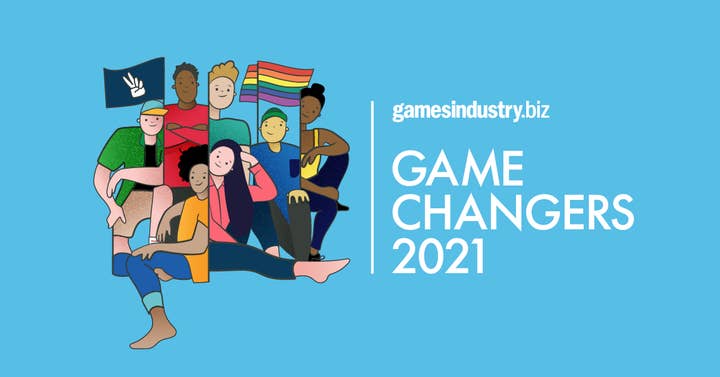Game Changers 2021: Part Nine
Today's profiles include Ubisoft's accessibility champions, supporters of marginalised developers, and a group boosting Ireland's start-up scene
The GamesIndustry.biz Game Changers is an initiative that profiles individuals and organisations making progress in vital areas like diversity, accessibility, charity, mental health, progressive politics, lifting emerging markets, uniting communities, and more -- people whose stories can show us how this industry can be that better and more inclusive place.
Below is the penultimate wave of 2021's Game Changers, with more to follow every working day, with a full wrap-up coming later this month. Find previous articles and more about this project here.
David Tisserand, Jonathan Bédard, and Andrei Lange
Accessibility should not be an afterthought for game developers, so we're acknowledging a trio of Ubisoft developers for their efforts to make it a concern from the first steps of development -- and sometimes earlier than that.
The publisher doesn't always get it right, but it has been one of a handful of major companies making significant and conspicuous strides in the field in recent years. Last year's Watch Dogs Legion and Immortals Fenyx Rising were particularly accommodating for those with mobility and hearing issues, and this year's Far Cry 6 also fared well in Can I Play That's accessibility reviews.
David Tisserand is the senior manager of accessibility at Ubisoft Montreal and founded the publisher's accessibility team in 2017. His push into accessibility started the first time he was able to dedicate himself solely to one game, as a user research project manager on Assassin's Creed Origins. Able to give the game his complete focus, he went to developers on the game one by one to get them on board with making it "the most accessible Ubisoft game ever made."
"Bringing different perspectives to every single step of video game production will let us make better games"
Andrei Lange, Ubisoft Kyiv
He credits the rest of the centralized accessibility team -- Cherry Thompson, Clinton Lexa, Billy Gregory and Ian Hamilton -- for helping to push for better accessibility approaches in game development, as well as " the hundreds of people who are ensuring daily that they put accessibility at the center of their practice." Outside the company, Tisserand also says disabled players, consultants, and developers in other companies have been instrumental in providing feedback and shaping best practices.
Ubisoft Quebec UX director Jonathan Bédard was pushing accessibility in his projects since Assassin's Creed Syndicate, pushed it further with Assassin's Creed Odyssey, and created one of the company's accessible games to date with Immortals Fenyx Rising, which received an 8.5 out of 10 mobility review score from Can I Play That and 9.9 out of 10 score for deaf and hard of hearing accessibility.
This year, Bédard also led the UX Days: Accessibility Edition, a five-day virtual conference for Ubisoft developers with more than 20 speakers shared best practices and approaches for accessibility with more than 200 attendees from throughout the Ubisoft studio system.
He says it's important to educate people and sometimes even "preach" about accessibility to turn his fellow developers into allies, but stresses that making games more accessible is a team effort. He credits Tisserand and the entire accessibility team with supporting developer efforts on this front, as well as the QC headquarters in Bucharest for "ensuring that our games are deeply looked at with different lenses or to some of our development studios, dedicated to pushing the boundaries further through specific endeavors."
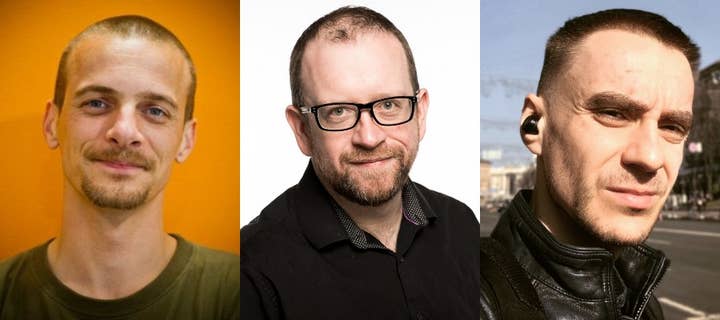
While Tisserand and Bédard have been concerned with accessibility in game projects, Ubisoft Kyiv associate production director Andrei Lange is building the approach into the company's games at the engine level.
Lange runs a team of developers working on the reference branch of Ubisoft's Anvil engine to make implementing accessibility features easier and more efficient for the rest of the company's developers.
Like Tisserand and Bédard, Lange credits his co-workers for buying into the plan and working to make Ubisoft games more accessible, and he also emphasizes the contributions of the players.
"We need different people leading the way, not just cis white males in their 35-50-year-old age range -- myself included"
Jonathan Bédard, Ubisoft Quebec
"Being able to communicate with them, listen to their feedback and ideas brings us to the absolutely next level of passion and commitment to make our games even better and enjoyable for every single player around the world."
In fact, he says that's one of the best things the industry can do to support the accessibility cause in games.
"Bringing community closer to developers and developers closer to players is a key factor," Lange says. "Giving a chance to players with different perspectives to speak up and being heard by people working on the games they love is what we need for success. Bringing different perspectives to every single step of video game production, from the very concept till live phase of the project will let us make better games in which every person will find something they will love."
Bédard agrees on the need for diverse perspectives.
"Good accessibility comes with empathy and perspective and I think this comes from diversity, in large parts," Bédard says. "We need to keep pushing for better representation, inclusivity and diversity in our industry. I think that if we are to see and do things differently, we need different people leading the way, not just cis white males in their 35-50-year-old age range -- myself included."
As for Tisserand, he says the best way to support accessibility is to have more developers embrace it.
"The more studios and companies are making their games, events, and communication accessible, the more it shows to the rest of the industry and all players that accessibility is not something special or aside from 'traditional' game industry," he says. "The more of us that make strides on this topic, the more it normalizes it and includes truly everyone in the social phenomenon that games have become over the past ten years."
Karla Reyes
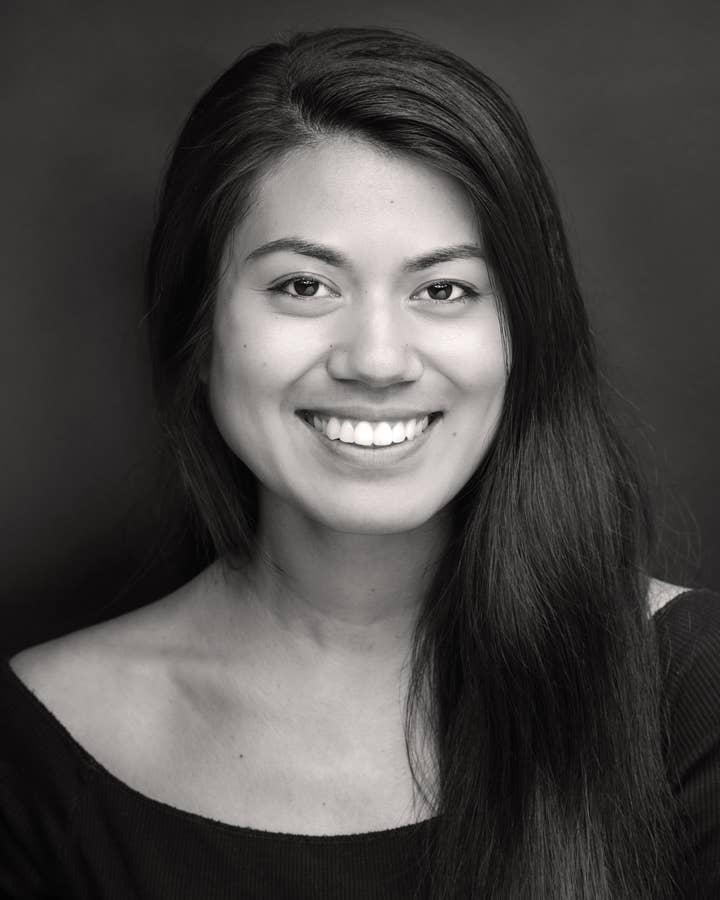
By day, Reyes is a product manager at Niantic, but by night, she is head of business development at Code Coven, an accelerator for marginalised developers. Reyes joined Code Coven as a founding member two years ago and helped create the mission statement, which is to elevate marginalised voices and increase representation at all levels within the industry.
In 2020, when the pandemic caused several internship opportunities to be cancelled, Code Coven worked to fill the gap. It created a summer accelerator program to give young developers the chance to fulfil practical work experience, and receive mentorship from other professionals.
In just 18 months, Reyes has raised over $1 million for grants and scholarships for underrepresented game developers, and recently secured enough funding to make Code Coven's Introduction To Game Making course free to all applicants in 2022.
"We have lofty dreams at Code Coven that may seem unrealistic at times considering existing resources," she tells us. "Thanks to our sponsor, mentor and alumni network as well as relentless endeavours from the team, many of our goals have come to fruition."
As the daughter of immigrants from the Philippines and Guatemala, Reyes was always encouraged to pursue more lucrative career paths rather than the creative industries. She hopes to help to ensure that future generations do not endure the same hardships.
"My journey has been gruelling at times, and I hope to forge a smoother trail for other aspiring and active game developers from marginalised backgrounds"
Karla Reyes
"My journey has been gruelling at times, and I hope to forge a smoother trail for other aspiring and active game developers from marginalised backgrounds," Reyes says.
"Sustainability is so critical to truly uplift people from adverse circumstances," she adds. "By equipping underrepresented artists with time and resources to focus on creating rather than worrying about survival, the results can be electrifying."
Reyes also serves as an advisor at several organisations, including BAME in Games, the UN's Playing for the Planet Alliance, and Devcom. During her stint at Square Enix, she co-founded RED, an employee resource to support and set standards for DE&I efforts across the company.
"Despite many of my positive experiences within the games industry, I have still encountered discrimination firsthand and am fervently committed to preventing others from having to face similar adversities," Reyes adds.
Reyes encourages people to consider collaborating with organisations and advocacy groups like Code Coven, POC in Play, BAME in Games, Limit Break, and Latinx in Gaming.
"While there have been palpable social impact efforts across the games industry, we are still in nascent stages in the mission to move the needle," Reyes says.
"Even an hour of your time imparting wisdom to members of these communities can go a long way."
Gaming Ohne Grenzen
Translated as "Gaming Without Borders," this German initiative launched in March 2020 and aims to raise awareness of accessibility features in games, with a particular focus on young people -- both with and without disabilities.
The organisers arrange weekly playstesting sessions with children and teenagers from Cologne and the surrounding area, in order to help better assess how accessible each title is.
"Audio descriptions, well made subtitles, button remapping and tutorials are good examples to let more people be part of games"
Mara Schulze, Gaming Ohne Grenzen
"Our goal is to find out which games are barrier-free and accessible for people with all kinds of disabilities so that gaming is accessible to and fun for everybody," explains Mara Schulze, one of the project's key collaborators.
"We play, test and discuss all kinds of digital games in inclusive groups with kids and young adults between 12 and 27 years and put our results together on our website, gaming-ohne-grenzen.de.
"Mainly we are a youth work project so having fun together and working on a collectively on the tests is just as much part of our project as finding barriers and ways to overcome them."
Games are assessed based on four main categories:
- Hearing: Can the game be played without sound? Are the subtitles suitably readable?
- Seeing: Can those with visual impairments, such as blindness or colourblindness, still enjoy the game?
- Controls: How accessible are the controls? Are there settings for players to customise them and make them easier to handle?
- Understanding: How complex are the puzzles? Are there scary moments that might upset younger players? Is the language complicated?
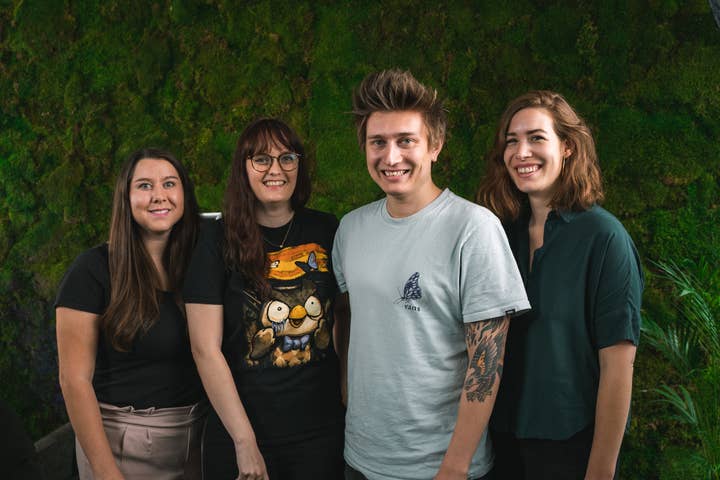
The project is part of Fachstelle für Jugendmedienkultur Köln (FMJK), which translates as 'Specialised agency for youth media culture in Cologne.' It continues thanks to the sponsorship of German mobile network operator Congstar and social organisation Aktion Mensch.
"We are also very glad to be well supported by the youth centres that we have our meetings at," says Schulze. "The kids and young adults that help us test the games and put the results together are also a huge help and it wouldn't be possible without them."
Schulze hopes the project will encourage more developers to think carefully about how accessible their games are, adding that there are many ways to improve this.
"Audio descriptions, well made subtitles, button remapping and tutorials are good examples to let more people be part of games. Of course, there are many more ways and people need individual settings and options in games. But first of all the industry can help and have a big impact on accessibility of games for everyone by targeting gamers with different kinds of disabilities and adding more setting options."
Ethan Redd
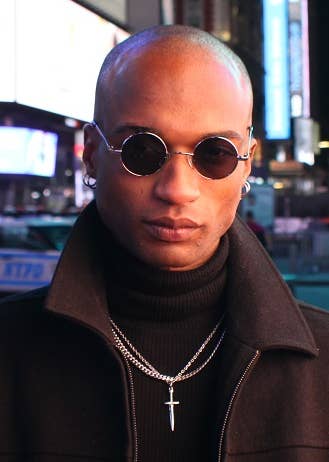
When Ethan Redd founded Virtuoso Neomedia, the independent production house to have a focus on "fun-forward games and media". His company is still one of the few Black-led and -owned games studios.
"After I dropped out of NYU in 2014, I decided it was time for me to take myself more seriously and started cutting my teeth on everything from my own jam projects to music video work to consulting," he explains. "In 2017, I started Virtuoso as the first step towards building towards my larger vision of running an independent studio based in self-sustainability and aesthetic commitment."
He goes on to note that despite his role as founder of the company, he is still primarily a designer by trade.
"Day to day, I have my hands in all aspects of game creation from production to direction to code to artwork, but I first and foremost consider myself a designer," he explains.
"I cast the vision and 'big picture' for the team and work closely with everybody to ensure that both it and their potentials are realized through our work."
Over the years Redd has consulted for game design, art direction, and music videos. He now intends to create his own original work, new IPs, and "making accessible hits for a new generation."
"Games are a means of expression for me, but also a way to connect with others and spread optimism and positivity"
Ethan Redd, Virtuoso Neomedia
Redd wanted to make games for as long as he could remember so he started teaching himself code and art since he was nine years old.
"Games are a means of expression for me, but also a way to connect with others and spread optimism and positivity," he says. "I believe in the power of the media to inspire, and to affect real change in our audience's lives. I committed myself early on to creating works that feed the spirit and affirm the best in life, and that drive continues to motivate myself and my team to this day."
To help him accomplish his goals and work Redd credits his and friends that he's worked with over time. "My core team consists of my younger brother Seth, 2 Mello, and DV-I. I've worked consistently with my friends Skybridge (Steven Lukens and Harry Patterson) since even before Virtuoso was a thing," he notes.
Redd also says that the support he's received from Glitch's Moonrise Fund has been great.
When it comes to the best way to support him Redd simply says to come work with him.
"We're always looking for exciting collaborations and opportunities to showcase our works and talents in bold, exciting ways. We have an aggressive release schedule planned, starting in the coming new year, and are always open to discussing avenues to work together to create exciting new experiences for hardcore players and newcomers alike."
Kippie
Hubs to support game development are few and far between in Ireland, and Kippie is an organisation working to bridge that gap. Based in Londonderry, Northern Ireland, the organisation provides workshops designed to take aspiring developers through the process of making and marketing a video.
"We believe games are for everyone, and the best way to reflect that is to have games made by everyone"
Katherine Rowlandson, Kippie
The company provides all of the equipment to create a game too, from laptops and tech gear to art materials. The classes are always free and absolutely anyone can attend. Kippie is led by manager Katherine Rowlandson, programmer Caroline Anderson and artist Justine Scoltock.
"We believe games are for everyone, and the best way to reflect that is to have games made by everyone," Rowlandson tells us. "By having a more diverse range of voices making games, we will have a more diverse range of stories told, and that has to be good for everyone."
The idea for Kippie formulated in 2016, after the three ran a workshop in a local gallery to coincide with an exhibition. The workshop saw a number of young people create their own games, but as Rowland notes, the girls in the group were more likely to downplay their experience of playing games.
"This led us to look at who was making games, who was playing them, and why so many girls seemed to think games and gaming had nothing to do with them, or nothing for them," Rowland says. "Who else was being left behind by the games industry?"
Since then, the organisation has hosted countless development classes, as well as game jams to get young people together to create their own games.
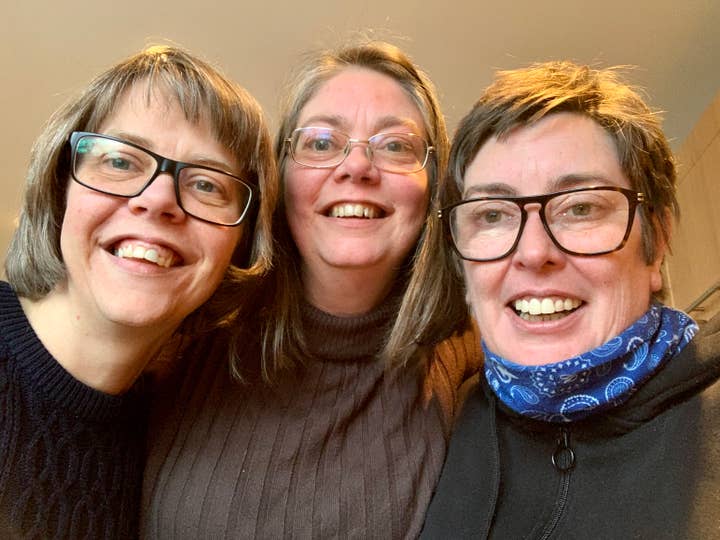
Rowland notes that "girls and young women are bombarded with imagery that places them outside the digital revolution", and tells us that Kippie specifically aims to introduce more girls to making games. One of their initiatives -- Girls Make Games -- is set up to help young girls familiarise themselves with development as an interest, and to show that it's a normal and attainable career path.
"If you are a female dev, get in front of girls and let them know," Rowland says. "Share your story online, go to schools and youth clubs. Even better, share your story with us so we can inspire our students. Role models are important, as is normalising the fact that women work in the games industry."
Kippie has received support from the social enterprise sector and Northern Ireland game dev community, and has been awarded several grants to fund its endeavours. It also urges the industry to support grassroots organisations in general.
"If you really want a diverse workforce, then be proactive about it," Rowland says. "By finding, supporting and encouraging young people from a wide range of backgrounds to become interested in game making from an early start, you will have a much more diverse pool of talent to hire from in a few years."
Check back on tomorrow for the final wave profiles of our 2021 Game Changers. The profiles will all be compiled on this page until our wrap up article on Wednesday.
